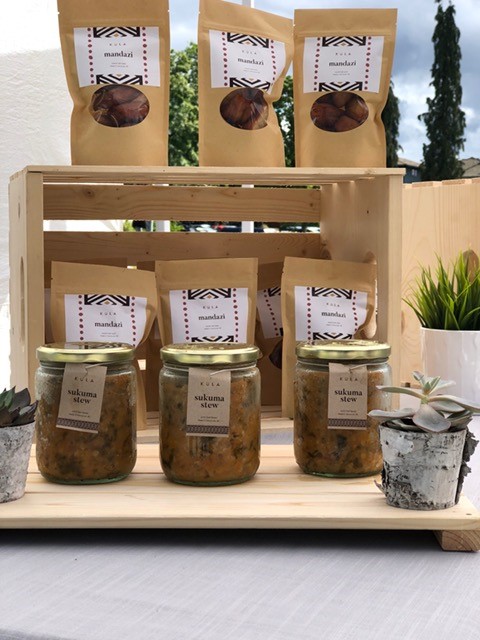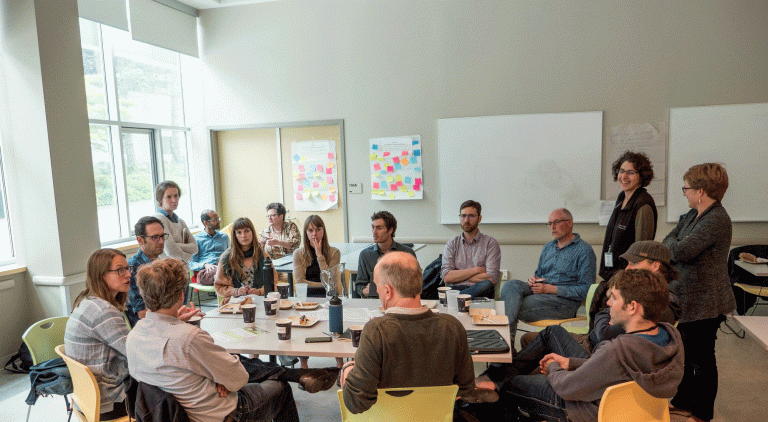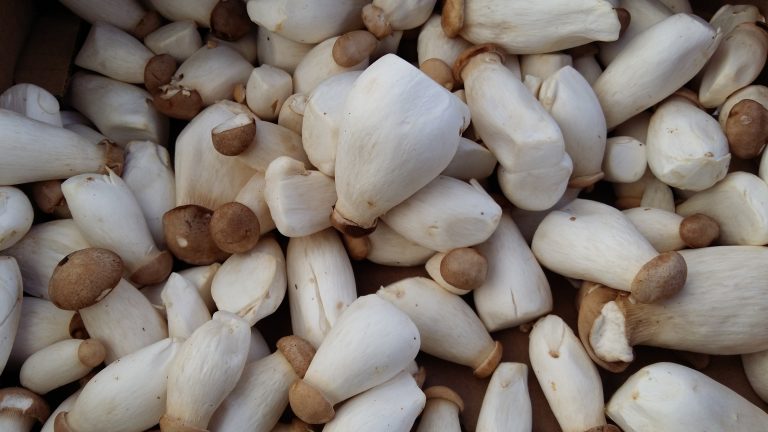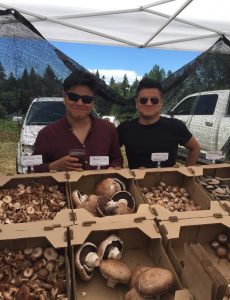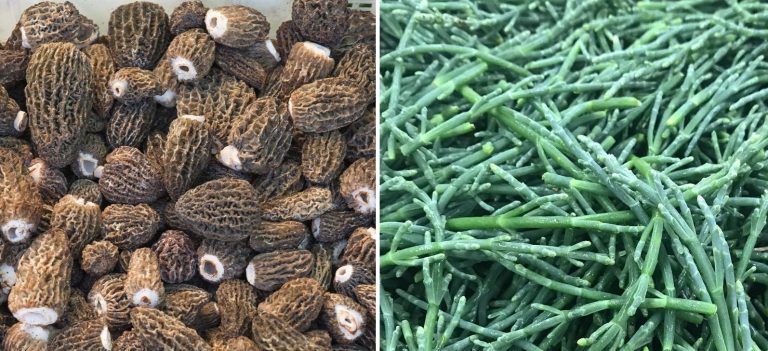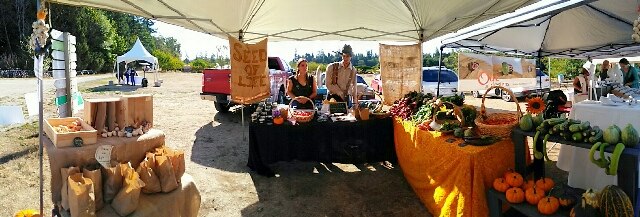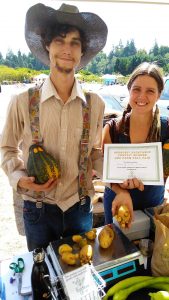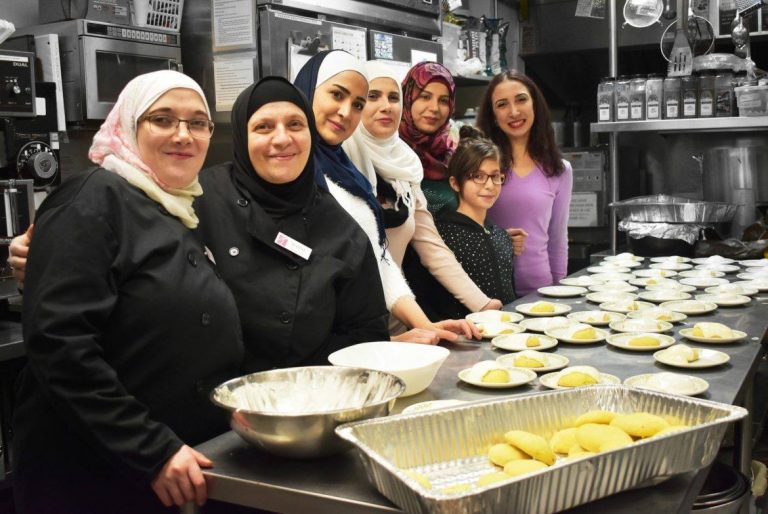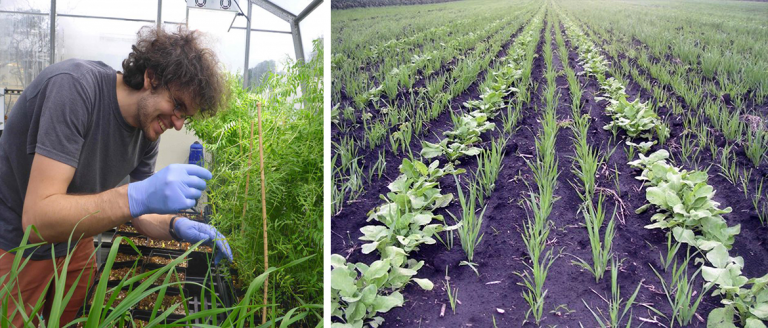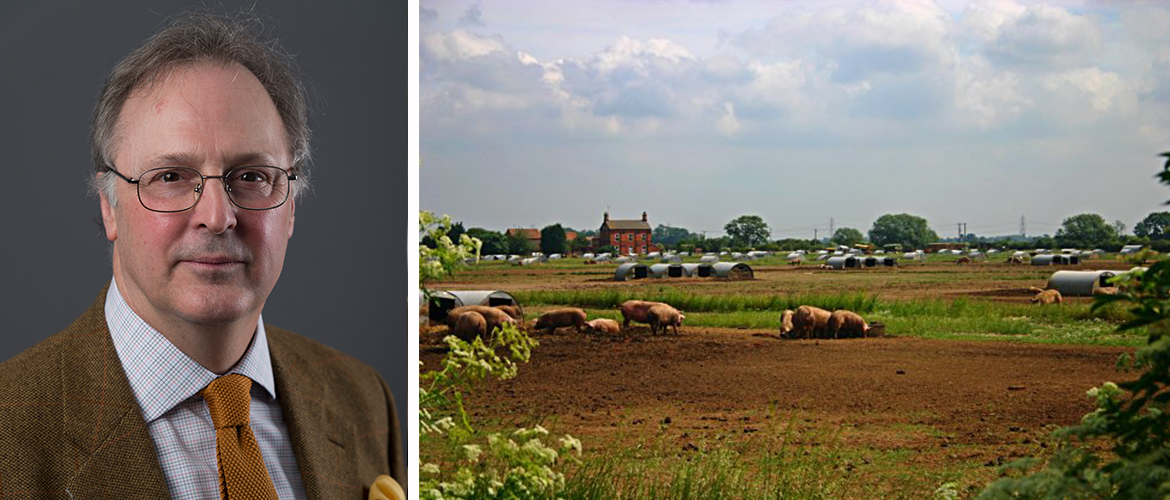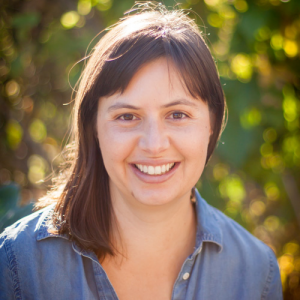This week we are excited to feature The Good Chocolatier, now in their second year vending at the UBC Farm Market. Owner Mara Mennicken’s committment to sustainability, nutrition, local processing, and of course incredible flavour captured the attention (and taste buds) of our market community last year and we are thrilled to have her back at the 2018 market for even more dates.

We took this opportunity to ask Mara some of the questions that we know marketgoers often have when it comes to her chocolate. Read on to find out what inspired her to become a chocolatier, how she makes her chocolate, and why her chocolate bars are so much more healthy than conventional chocolate bars!
How was The Good Chocolatier started? What inspired you to get involved in this business?
When I first came to Canada three years ago, to study at Capilano University, the sustainability team on campus had organized a farmers Market, so students could ‘meet (some of) the makers’ in Vancouver. I was browsing around and there I saw it, chocolate! I couldn’t help but stop. Pierre Gruget, the owner of the former company Chocolate Naturel gave me samples, explanations, statistics, many reasons to why he was making the chocolate the way he was. We got into chatting for a good half an hour because I was so impressed by his practices, knowledge, and his dedication to be as ethical and sustainable as he could. And of course, his delicious chocolate. There my journey began, I went to start volunteering with him in the background, in the beginning only for wrapping his bars, then selling, and finally I entered the kitchen so see how his chocolate was made. Two years passed and for family reasons, he decided to move back to France… so I gave it a shot! We are still in contact, occasionally I ask him for advice and he tells me how horrible some chocolate is that he finds while travelling!
What makes The Good Chocolatier different from conventional chocolate bars?
So much! If you appreciate your health and moreover, the plants and the ecosystem around you, you might know about most organic chocolate bars out there. Organic is a good start, but when it comes to chocolate, we find, it is not enough. Cacao, like clothing and coffee, are resources that often have a bloody past before we access them here in North America. Child labour, child trafficking, and slavery are terribly common in the chocolate industry. We do not purchase cacao from sub-Saharan Africa, where most child laborer are employed and instead, found a fair trade source in Ecuador, that has flavour notes like no other cacao. Criollo, the name of the bean means translated ‘wildly-grown’ and is also hand-picked. It’s flavour profile is nutty, floral, not too bitter, and highly nutritious. On top of that, we don’t use cane sugar, no soy lecithin, no additives.. no gluten or anything else that doesn’t belong into a good chocolate bar. It’s simply chocolate, pure and rich. Oh yes, and it’s handmade! Machines probably don’t put as much love into the chocolate as I do…
Where are all your products made?
In East Vancouver, at a commercial commissary kitchen that I share with three other vendors. It is the best to be in a maker’s space and have exchanges about food, business, markets and all that a small business entails. It’s a fun and productive environment, thank you to my co-workers Oguz from Temple Soda, Trudy-Ann with her Chai Tea, and Imbue Kombucha!
Mara’s busy stall at the market in the fall of 2017
Are there health benefits to your chocolate? What are they?
YES! There was a study conducted in collaboration with UBC, which found that The Good Chocolatier’s chocolate is six times more healthy than conventional chocolate bars. This is due to the use of a well-fermented bean, low temperature roasting, and clean, organic ingredients. The main reasons to eat chocolate are because of it’s extremely high antioxidant content (some sources say it’s the food with THE most antioxidants), which are polyphenols, catechins, and epicatechins (the same antioxidants that are contained in red wine and green tea). These antioxidants prevent premature aging and prevent cells from free radical damage, and thus, major disease. Cacao is also the best natural food source of magnesium, potassium, iron, zinc, and theobromine, which provide you with many other goodies for your heart and brain. The list goes on, check the web for more! This godly food is real interesting.
If you could describe your business in three words, what would they be and why?
Authentic, addictive, and community. (usually I would say handcrafted, organic, fair trade but we covered those already). Why? I only use what I say I use, which is nothing that our body doesn’t know or like, the packaging is transparent and not double the size of the bar, and my chocolate remains hand-made and 100% organic. The authenticity is part of why our chocolate is so addictive! Every bite feels so nourishing, real and full in your mouth and belly that it is hard to go back. Lastly, community or social because I chose to work with socially marginalized communities, and PALS Autism Society in particular, to be more inclusive, social and to strengthen the local economy with the support of everyone who lives here. I also love to be a part of Vancouver’s unique makers community, of course!
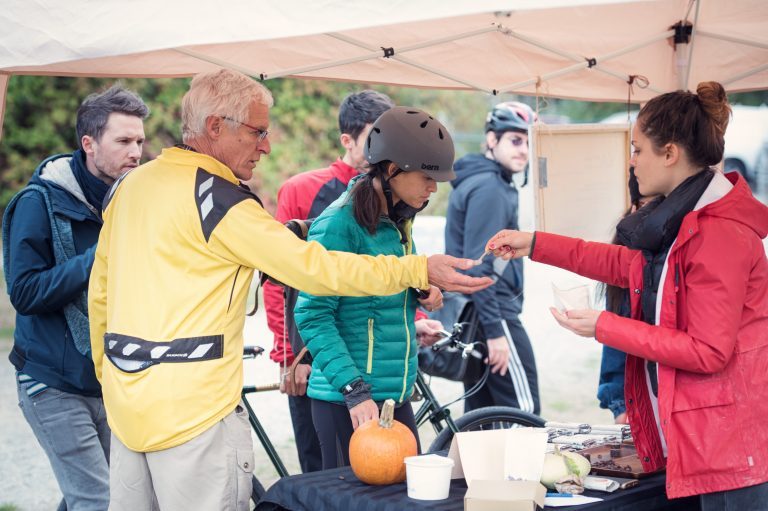
What brought you to UBC Farm? Is there anything different about this farm market compared to other markets in Vancouver?
Jillian form Amai Vegan Treats told me about this market last summer, when I just took over the business from Pierre. I remembered the study that he conducted a while ago with UBC and since I am selling to Stong’s Market close by, I thought it would be a good starting point. UBC Farmers Market was actually my very first Farmers Market and I totally fell in love with it. The customers are happy, the land and farm is beautiful, the musicians are talented and UBC farms produce is absolutely delightful.
Where else can people find you and purchase your products?
- Stong’s Market on Dunbar
- Green’s Organic on Broadway
- Safe On Foods in North Van (Brooksbank & Tilford)
- Nourish Market in Lynn Valley
- Tama Organic Life on E Hastings Street
- Crème de la Crumb on Clark Drive
- Stone Moth in Smithers, BC
- Online at www.thegoodchocolatier.com
- Coming soon: Vegan Supply in Chinatown
Find The Good Chocolatier at the UBC Farm Saturday Farmers’ Market on June 23, July 21, July 28, August 4, August 18, August 25, September 1, September 15, September 29, October 13, and October 27. Want to learn more? Visit their Instagram or Facebook page. Learn more about other market vendors and topics on our Saturday Farmers’ Market blog! These weekly market blog posts are linked from our newsletter when they are posted; to get regular updates, make sure to join our newsletter here.

